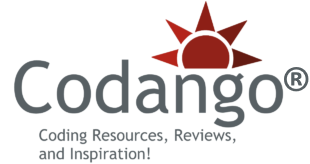At first sight, launching an eCommerce platform may seem like a super costly idea. But when it comes to Content Management Systems aka CMS, it’s a great thing to save on. Users are offered a huge amount of not only free but also flexible CMS systems with a wide range of customization options, scalability and community support that one might not always find in the enterprise solutions.
Obviously, it makes more sense to opt for a free eCommerce platform while doing your first steps in the world of the online market, especially when you’re sticking to a strict budget. The other question is which of the available free open source CMS to choose. At the end of the day, they all have different strengths and weaknesses.
Let’s review top 10 free open source CMS platforms for an online store to help you make the smartest decision.
- Magento Community Edition
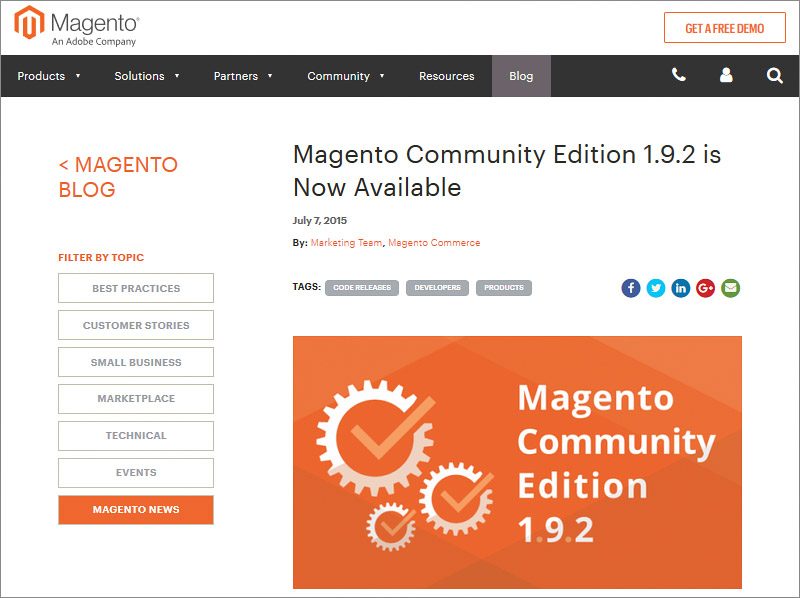
Magento went smart: they took a significant part of the Magento Enterprise Edition, which is a super expensive ($16,000 per 1 year) eCommerce platform used by Nike and Samsung, and turned it into a free community edition CMS. Why Magento? Simply because it has a bunch of unique features unavailable on other open source platforms. For example, you can manage multiple stores, select different languages and offer calculations in different currencies. No doubt, this is one of the best CMS for an online store, which is constantly supplemented with new plugins and extensions (those are mostly paid).
The only largest drawback of this content management system can actually be one of its main advantages. The Magento community is so vast that it is difficult to navigate in it. You will spend a lot of time studying all the pitfalls of the system, so get ready for a bit of work before becoming a proficient Magento Community Edition user.
- PrestaShop

Do you know that more than 250,000 eCommerce website have already chosen PrestaShop because it’s one of the easiest CMS offered on the market? The amount of efforts you are going to spend on creating an online store on PrestaShop depends strictly on you. You can choose either a fully-hosted or a self-hosted version that will determine your own level of technical control over the system. Of course, both versions are free.
The biggest con of PrestaShop, however, is a relatively small circle of customization. Also, if you like messing around with a bunch of graphics, this platform is not your greatest choice. Fewer customization opportunities can make you purchase some additional themes and templates or even make you mess with the code.
- OpenCart
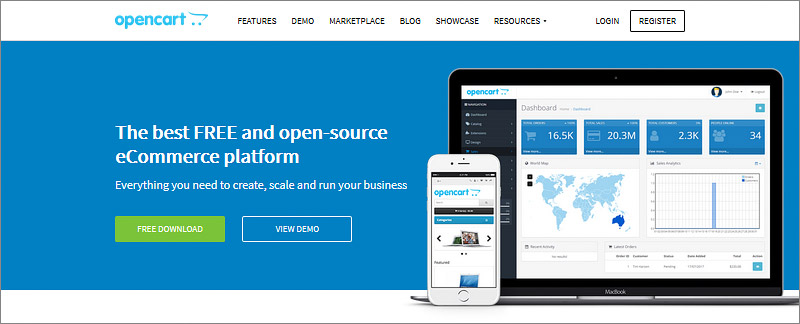
OpenCart is especially common among small business owners with no coders in their teams because what they really need is a fairly simple platform with a limited number of functions. Also, you can choose from a variety of different plugins allowing you to make the site configuration more flexible. Another great perk concerning its simplicity is the fact OpenCart doesn’t drag on your server.
Nonetheless, the greatest drawback of this CMS has to do with its high dependence on plugins. You may experience compatibility issues with various plugins, or you’ll need an update that will never appear. So compared to other software, OpenCart will make you rely on the mercy of plugin developers much more.
- osCommerce
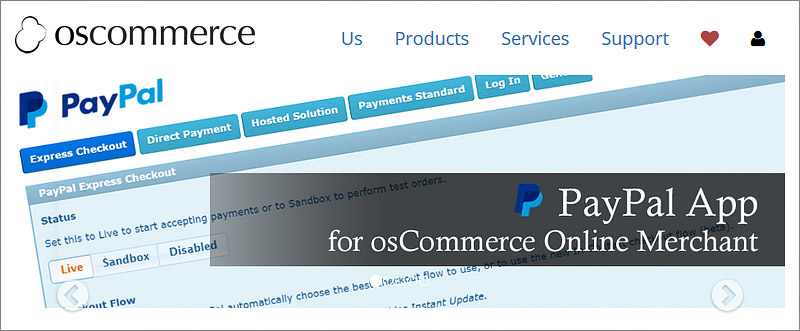
Over the past 15 years, osCommerce has become one of the most reliable free open source CMS for an eCommerce Website. The osCommerce community already developed more than 7000 add-ons allowing you to enjoy a wide range of customizing options while designing and improving the functionality of your site. More than 260,000 online store owners use this platform because of its extensive customer support.
The only “but” here is the fact that osCommerce can no longer boast with innovative features like its younger competitors and is now considered obsolete. Think twice!
- Zen Cart

The first thing to say about Zen Cart is its excellent management system. Zen Cart lets you customize whatever and however you want: from controlling the inventory to implementing special offers and sales.
Speaking of drawbacks, first of all, using Zen Cart for large online retailers is a risky business since adding a bunch of new products causes the platform to slow down. Still, the one is not the largest con of Zen Cart. Frankly speaking, this CMS is far from being aesthetic – at least, without using special templates or hiring a talented coder.
- Spree Commerce

Spree is one of the new platforms for eCommerce activity built on Ruby on Rails. Because of its modular platform and simple functioning, you’ll have no difficulties in configuring and updating the site’s functionality. Most of the extensions are supported by Spree itself and not by independent developers allowing you to make timely updates.
The platform’s greatest advantage is its flexibility and scalability. Perhaps, this is the reason why Spree is now considered one of the fastest growing CMS systems for an online store with open source.
- WooCommerce (WordPress)

This solution is widely considered to be the main open source eCommerce platform for WordPress. WooCommerce can boast of a large and fast-growing user community. A full integration with WordPress simplifies the installation and management processes in times.
WooCommerce is a smart choice for online store owners trying to satisfy customers coming to their sites using electronic gadgets. The platform even offers a special add-on for you to create a mobile app for a storefront. And so that you know, most solutions at WooCommerce are paid.
- Jigoshop (WordPress)

Although Jigoshop is quite basic, those who need more sophisticated and advanced functions can purchase some cool plugins and extensions. Likewise WooCommerce, Jigoshop is easy to use and navigate. BUT you’re only limited to one option – linking variations. In other words, you can’t associate different variants of goods. For example, if you sell multi-colored T-shirts, you can not just indicate “blue” as a color for all sizes. You’ll need to select a “blue small” option, then “blue medium”, and so on, which can be super time-consuming
- VirtueMart (Joomla)

VirtueMart is a popular open source platform letting you make a quick and successful start in the eCommerce industry. Multilanguage of this CMS makes VirtueMart attractive for trading companies offering their products around the world. The platform is SEO-optimized and supports invoicing and inventory management functions.
- Drupal Commerce (Drupal)
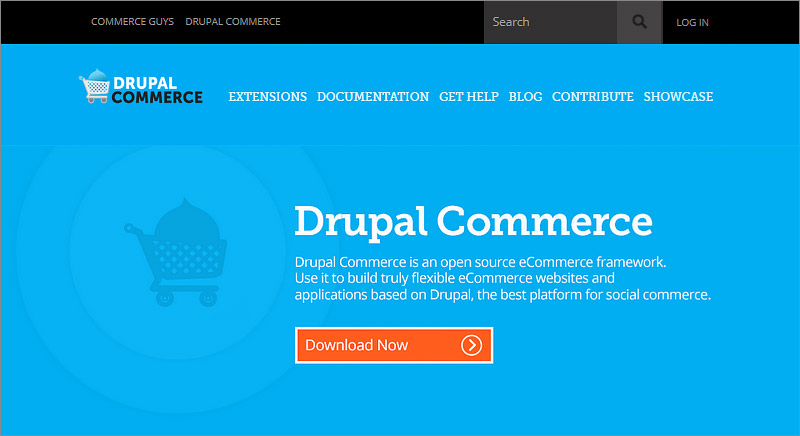
Drupal Commerce is a flexible and SEO-optimized CMS. It has an easy-to-use management system and supports complex payment options, for instance, those based on subscriptions. The platform can only be used with Drupal. The basic version is quite simple but there is also a “Commerce Kickstart” package containing an extensive set of useful features and popular add-ons.
Conclusion: Drupal Commerce is a smart choice provided you are looking for a simple eCommerce solution that can be upgraded or modernized with third-party add-ons.
So, What is My Best Platform?
It’s impossible to say exactly which of these 10 content management systems suits you best without analyzing the specific requirements and the scalability of your eCommerce project. Provided it’s a small type of an online store, choosing a simple platform (osCommerce or Zen Cart) will be more than enough.
On the other hand, if you wish to have more flexible configuration options or you are even ready to pay developers to set it all up, take into account more advanced platforms like PrestaShop or Magento.
Choose wisely!
